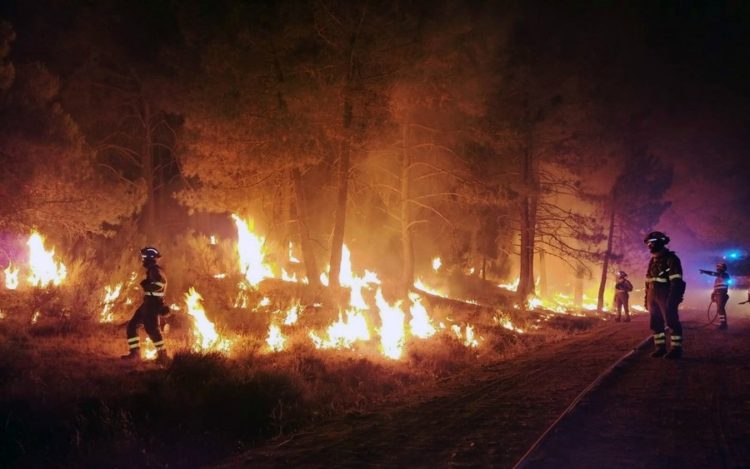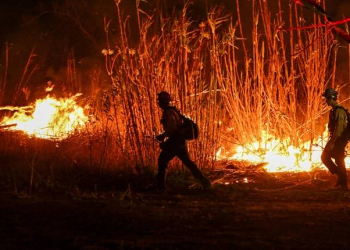Madrid: Despite firefighters successfully containing the wildfires in the Spanish regions of Catalonia, Segovia, Zaragoza and Avila this week, an ecology expert opined that extreme wildfires were here to stay.
“We don’t know exactly what will happen, there are always doubts, and climate models are sometimes wrong, but everything suggests that we’re moving towards a situation of higher temperatures, heat waves, more irregular precipitation less in quantity but very intense at times,” Narcis Prat, emeritus professor in ecology at the University of Barcelona, told Xinhua news agency.
“This is a new scenario we’ll have to adapt to.”
This year alone, 193,247 hectares of forest areas burned in Spain, according to the European Forest Fire Information System (EFFIS).
This is a new record, surpassing the 189,367 hectares recorded in 2012.
“In large part this is due to a lack of woodland management,” Prat said.
“For many years, woodlands have been neglected because doing anything with them was very expensive, they were difficult to access, and all this wasn’t profitable.”
“The main lesson is that we need to manage woodlands differently. We must avoid large masses of trees. Instead, trees should be mixed with undergrowth, meadows and agricultural fields to make what is called a forest mosaic. This would make it very difficult for wildfires to spread.”
However, since climate change mainly means rising temperatures, Prat warned that unless authorities around the world reduce carbon emissions radically in a short period of time, the situation is likely to get worse.
“What we’ve seen here this year with so many heat waves is something that scientists believed wasn’t going to happen for another five to ten years. Things have accelerated and scientists are worried that the forecasts they made for 2030 or 2050 are arriving more quickly,” Prat said.
On Friday, firefighters were still trying to control three wildfires that together covered some 31,000 hectares in Galicia, while two new blaze started on the island of Tenerife and in Guadalix de la Sierra in the region of Madrid.
(IANS)





















